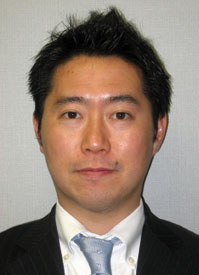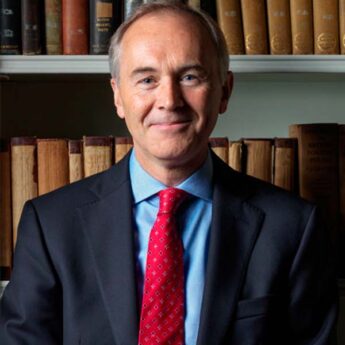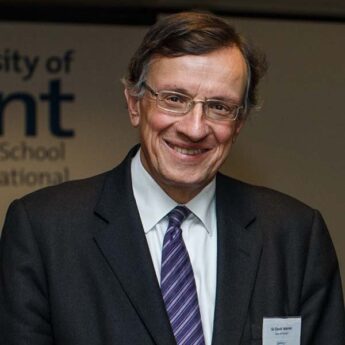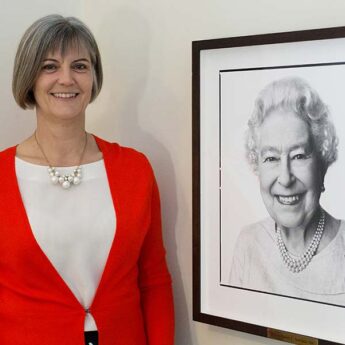The British Embassy Tokyo’s annual Chevening Scholarship programme offers Japan’s future leaders a chance to study in the UK’s world-famous educational institutions and be part of the future of UK-Japan relations.
What do Japanese politicians, business leaders, lawyers, journalists, diplomats, entrepreneurs and academics have in common? Apart from playing a pivotal role in the current and future prosperity of Japan, some have benefited from being part of the global Chevening Scholars Network.
Chevening is a prestigious scholarship scheme for international students who wish to study in the UK. Named after Chevening House in Kent, the official country residence of the foreign secretary, the programme began in 1984 and is funded by the Foreign & Commonwealth Office. The objective is to build a network of friends of the UK who will be future leaders in their respective countries.
So, what sets apart Chevening from other scholarship schemes? Besides providing successful candidates with full funding for a year’s MBA study, the significance of Chevening is its global scope: annually about 1,000 scholarships allow awardees from more than 130 countries to quickly develop a global network of friends, advisors and business partners. The number of available scholarships varies from country to country. In Japan, we offer a handful. With an average of 700 applications each year, competition is fierce and the selection process challenging.

Koh Nakajima
Case Study:
Name: Koh Nakajima
Job: Associate economist at Japan Business Federation (Keidanren)
Studied: MBA, London Business School, 2003-05
Why Chevening?
Although I was lucky enough to obtain the Keidanren’s permission to study abroad, it was a prerequisite that I win a scholarship from outside the federation. Long having wanted to study in the UK, I came across Chevening.
Why the UK?
I have felt a sense of attachment to the UK since my first visit to London in my childhood. I was truly impressed with the beauty of historical buildings and richness of the green parks. Some years later, upon completing my master’s degree in international relations at Waseda University, I applied to study for a PhD at some UK universities. Although the London School of Economics accepted me, as did the universities of Cambridge and Sussex, I was too inexperienced to win a scholarship, and so started my professional career at the Keidanren.
Since then, studying in the UK had been my goal. More important, having been born in Brazil, I have an affinity for football and am a big fan of Arsenal. When Chevening provided me with the opportunity, it was a no-brainer deciding to study at the London Business School, which has one of the best MBA programmes in the world and is located less than 30 minutes from Arsenal’s old home at Highbury Stadium.
Study and life
Although I struggled with finance and accounting modules, for which I had no academic or professional background, I enjoyed a variety of excellent courses such as international economics, organisational behaviour, negotiation and corporate strategy, all of which have been tremendously beneficial to me in a professional setting.
As for extra-curricula activities, I was fully engaged in all things football, and led the Asia team as captain at the LBS World Cup. In this five-a-side football tournament, we made the quarter-finals out of 20 teams—a very English result! Another memory I’ll always cherish is boozing at Windsor Castle, the pub adjacent to the LBS. Socialising with my multinational fellow students really helped to broaden and deepen my connections—something that the global Chevening network has enabled me to continue developing.
Back to Japan
After graduation, I returned to the Keidanren and was mainly responsible for policy issues, including free trade agreements and official development assistance, as well as regional issues covering Asia, the Middle East and Africa. When I undertook tough negotiations with my Indian counterparts to produce a joint prime ministerial statement in October 2008, I realised just how much I owed Chevening and the LBS for the multicultural experiences I’d had in the UK, and for helping me develop core skills, including strategic thinking and negotiating tactics.
For more information click here:
Ideal candidate:
- Graduate with personal, intellectual and interpersonal qualities necessary for leadership
- Motivated to make a career that will take them to positions of leadership in their own country within 10 years of their scholarship
- Committed to finding global solutions through networking
- Able to use UK studies and experience to benefit themselves, their countries and the UK
- Japanese national resident in Japan





